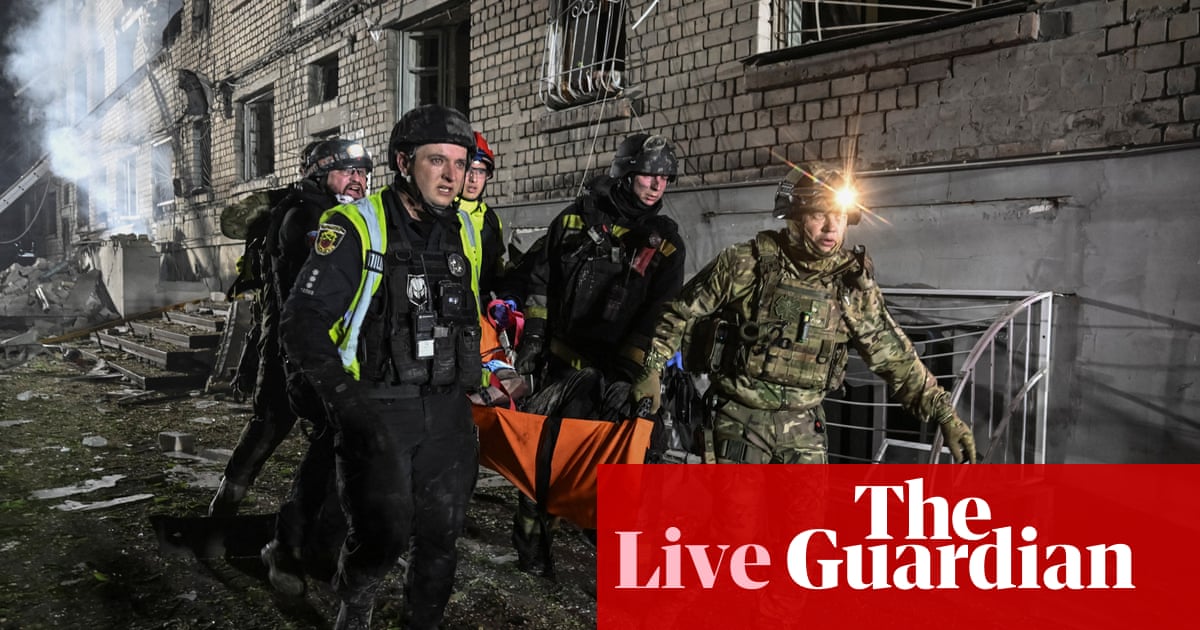Ukraine’s prime ministerDenys Shmyhaltold parliament that two of the three documents related to a minerals deal with the United States would not need to be ratified, lawmakerYaroslav Zheleznyakwrote on Telegram.
In the post, he also claimed that Shmyhalasked parliamentarians to complete the ratification process as soon as possible.
Reuters reported that Ukraine’s Cabinet of Ministers registered the law project to ratify the minerals deal with the US late on Thursday, according to the parliamentary database.
Over in theVatican,photographers captured workers installing chimney atop Sistine Chapel this morning, ahead of the conclave that starts on Wednesday.
As per tradition, aftereach round of voting, the ballot cards are burned.Chemicals are added to make the smoke black or white. Black smoke emerging from the 60ft chimney indicates an inconclusive ballot; white smoke announces to the world that a new pope has been elected.
Russianstrikeswounded more than 30 people in Ukraineovernight, AFP reported, a day after Kyiv and Washington signed a landmark minerals deal.
The Russian attacks continue amidgrowing signs from Washington that the Trump administration will approve its first sale of military equipment to Ukraine since Donald Trump took office, in an indication that theminerals deal signed by the two countries this weekmay open a path to renewed weapons shipments.
The state department hascertified a proposed licence to export “$50m or more” (£37.6m) of defence hardware and services to Ukraine, according to a communication sent to the US committee on foreign relations.
My colleaguesShaun WalkerandAndrew Rothnoted that it would mark the first permission of its kind since Trump paused all Ukraine-related military aid shortly after taking office.
Amid all of this, a sudden departure ofMike Waltzfrom the post of US national security adviser will prompt further questions about what to expect from the Trump administration, with state secretaryMarco Rubiotaking the role on an interim basis.
Elsewhere, withlarge parts of Europe in bank holiday weekend mode, I don’t expect too many story lines elsewhere. Still, I will bring you all the updates that matter – including on Romania’s upcoming presidential election, with the first round voting taking place this Sunday.
It’sFriday, 2 May 2025, it’sJakub Krupahere, and this isEurope Live.
Good morning.
